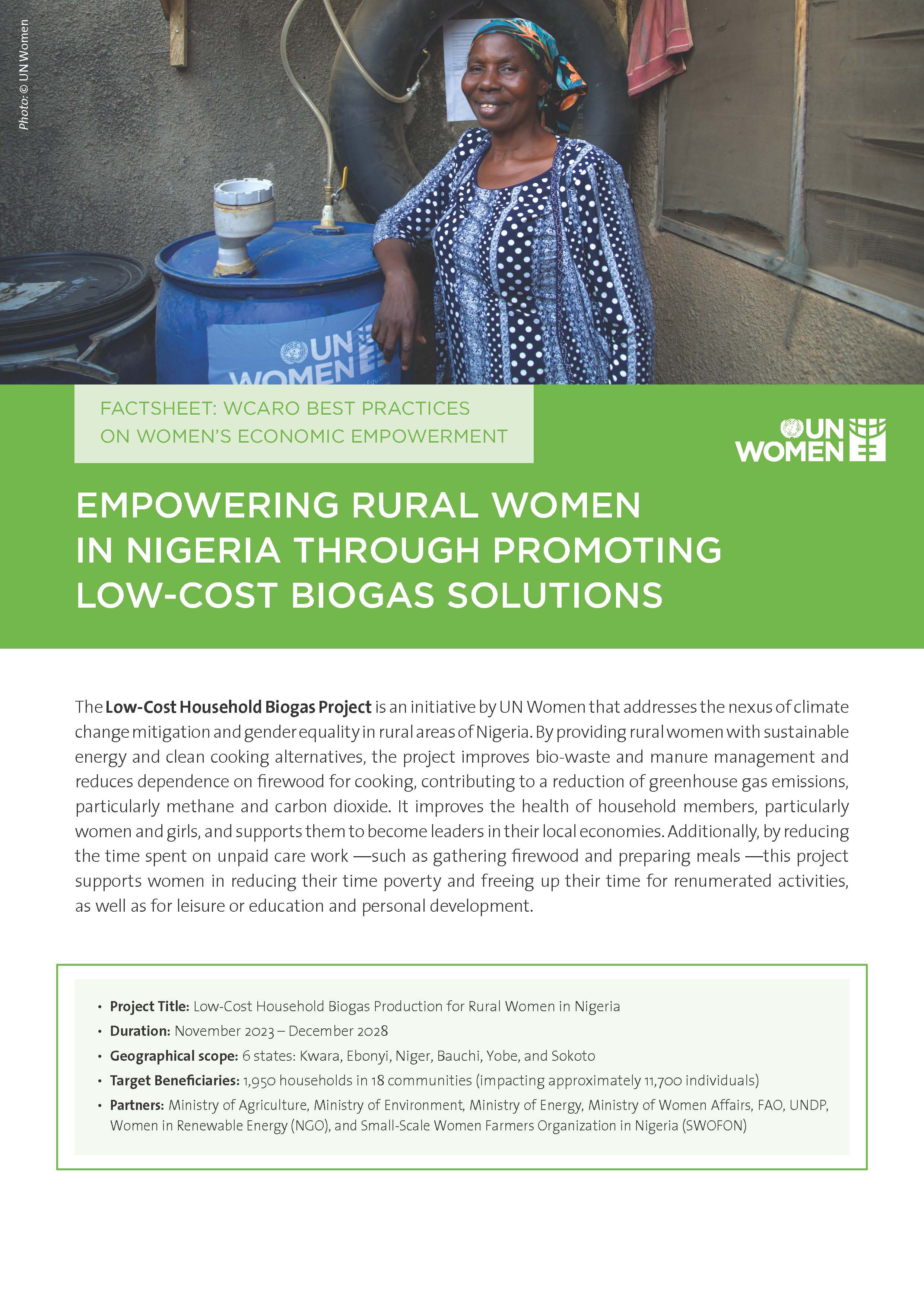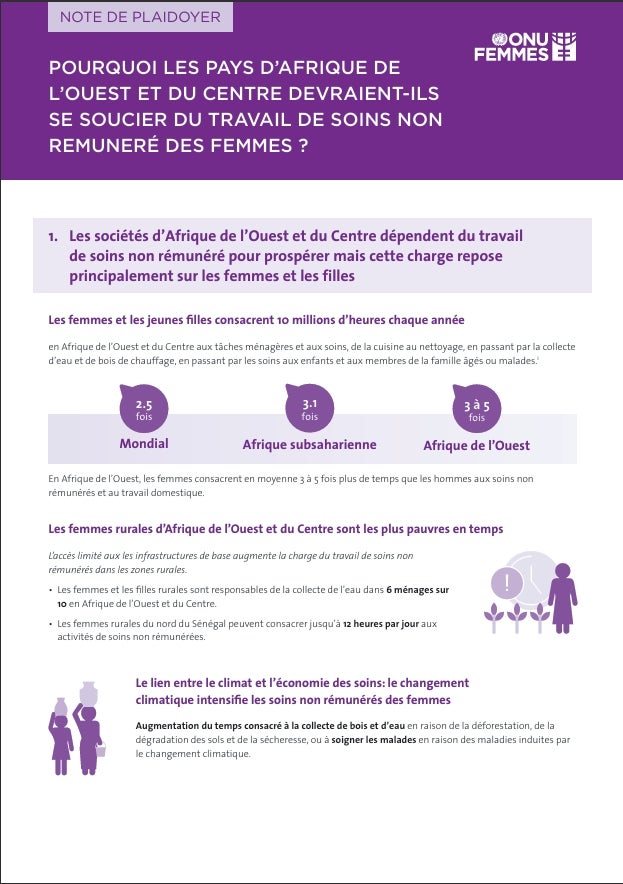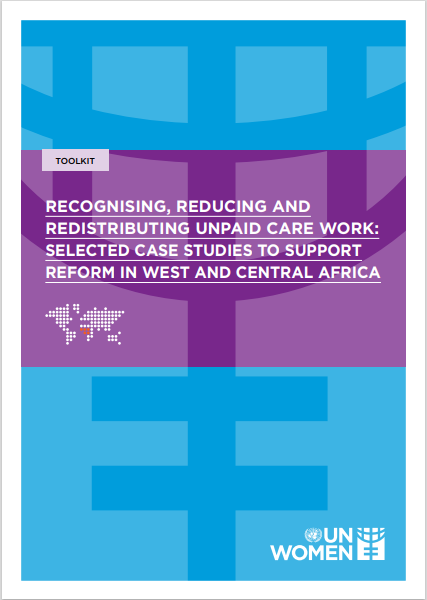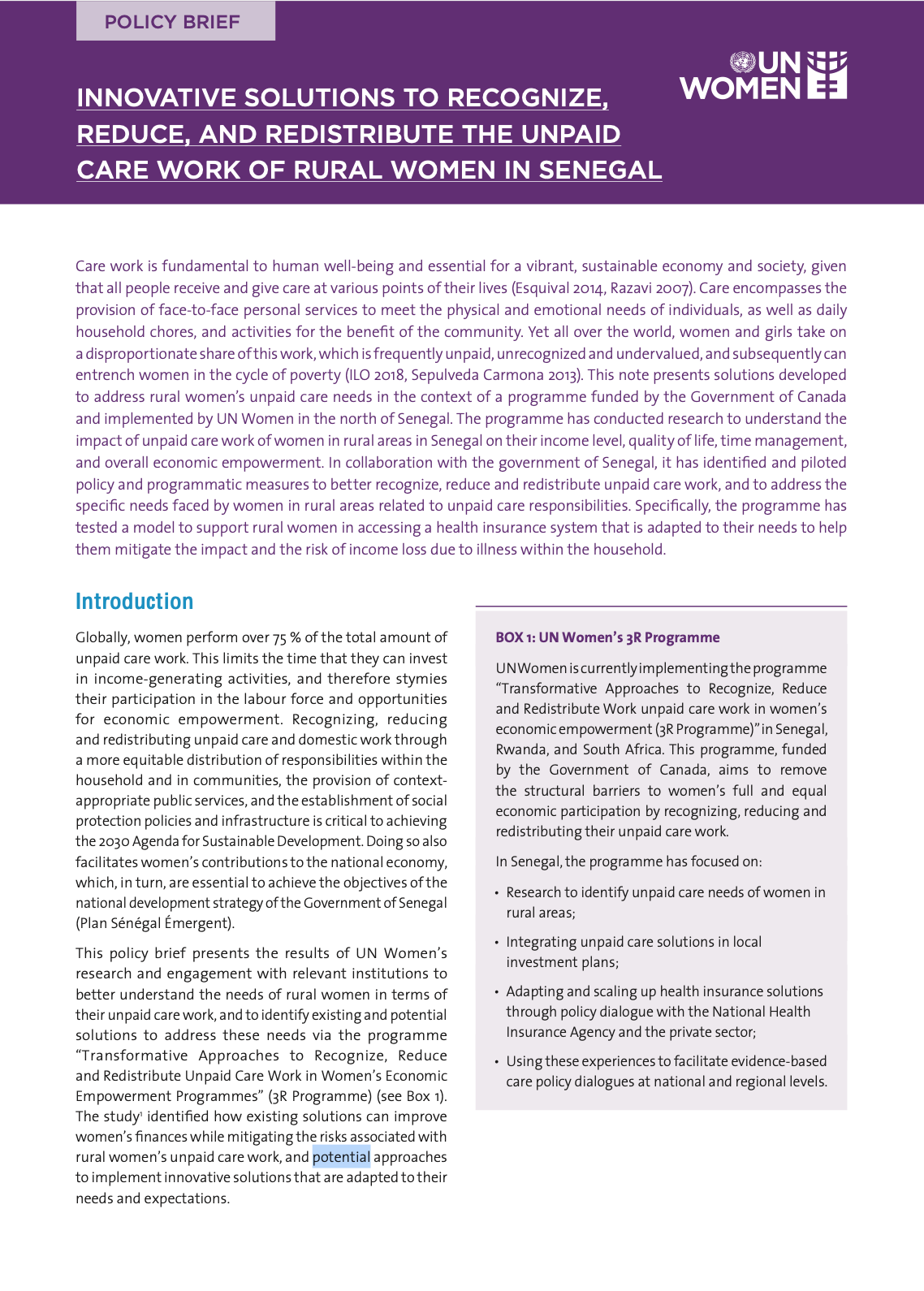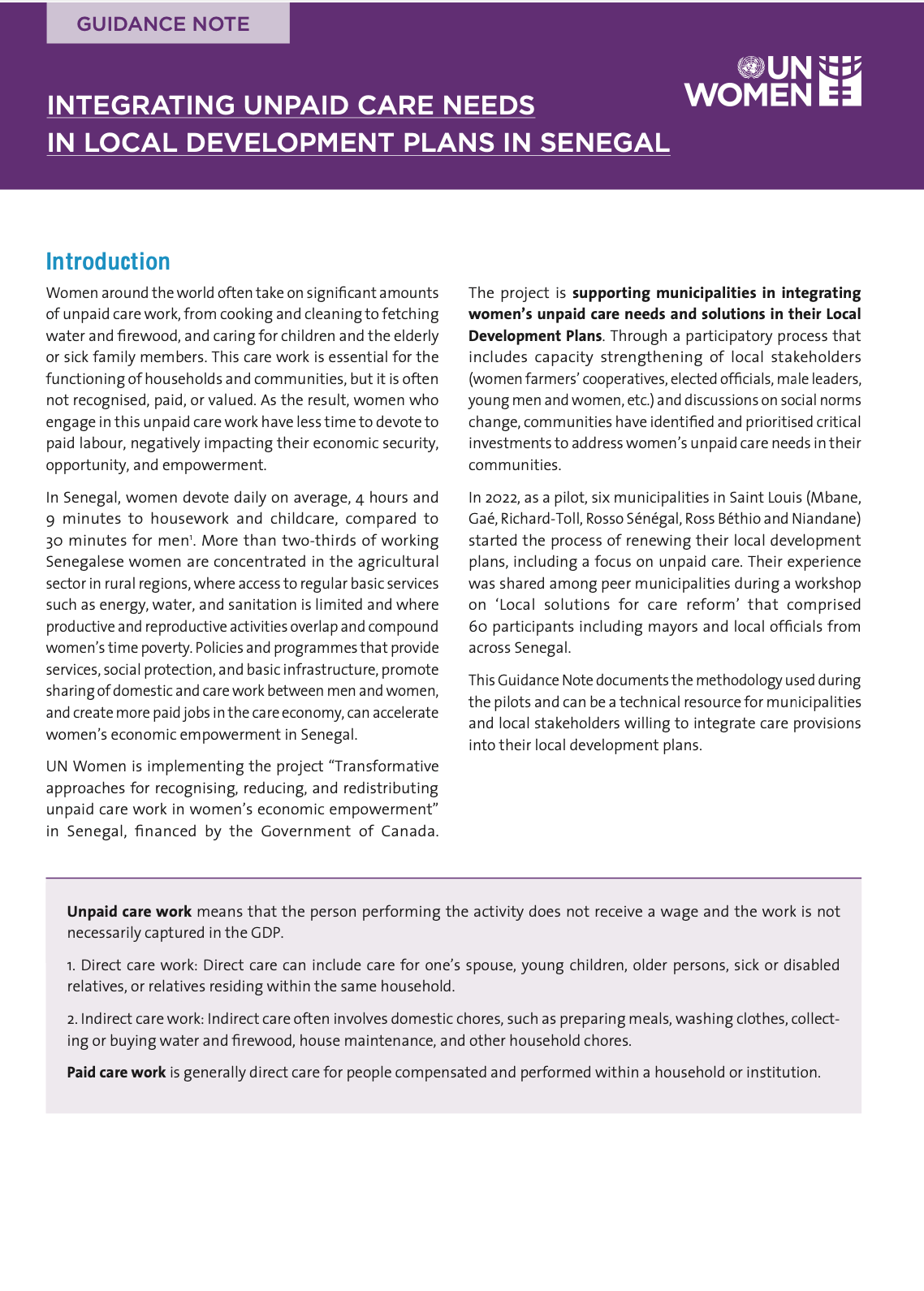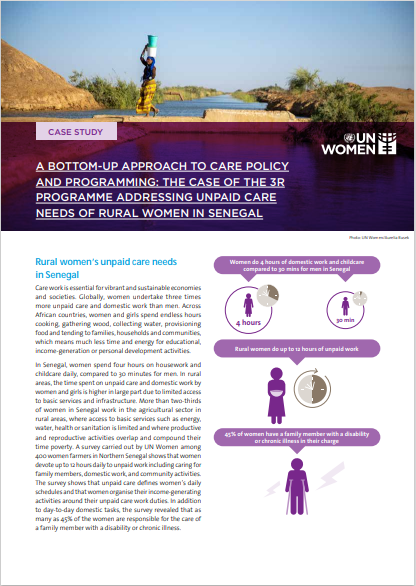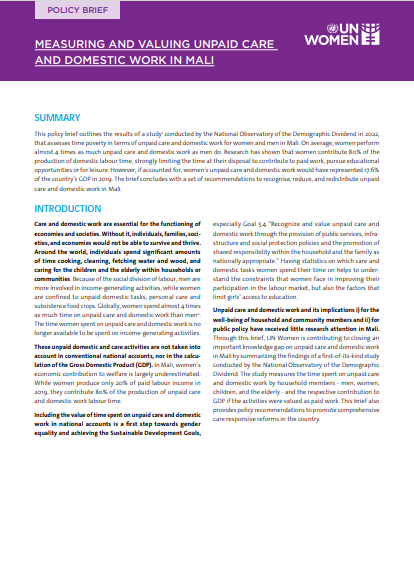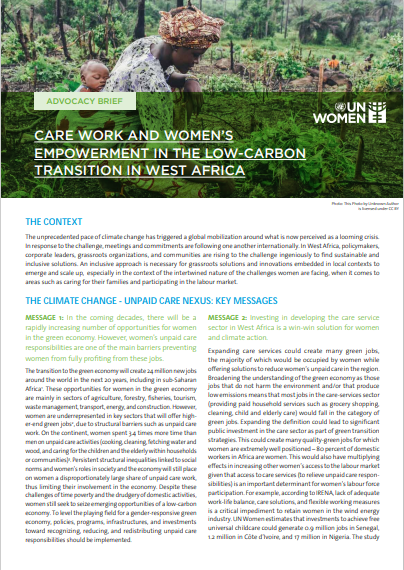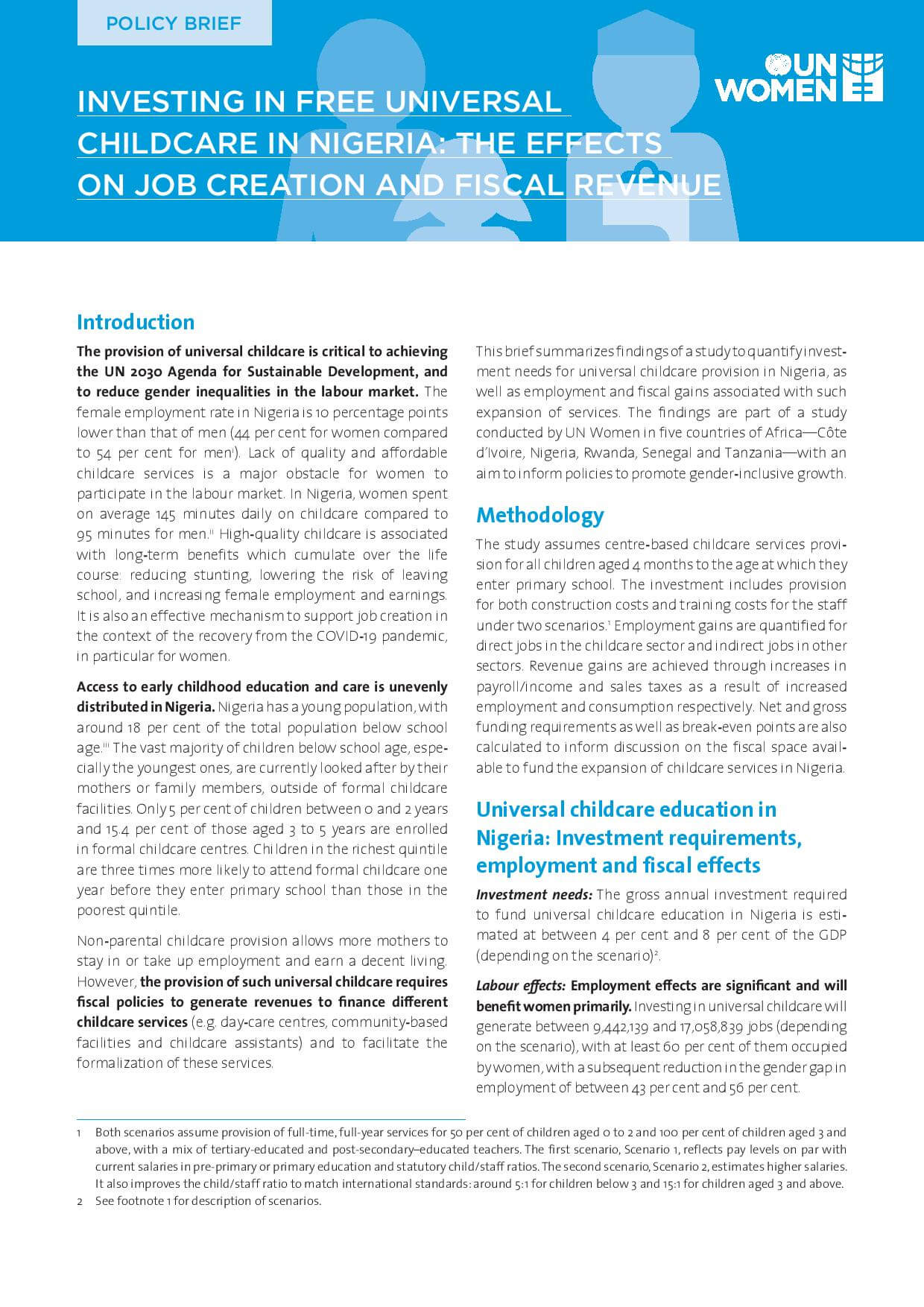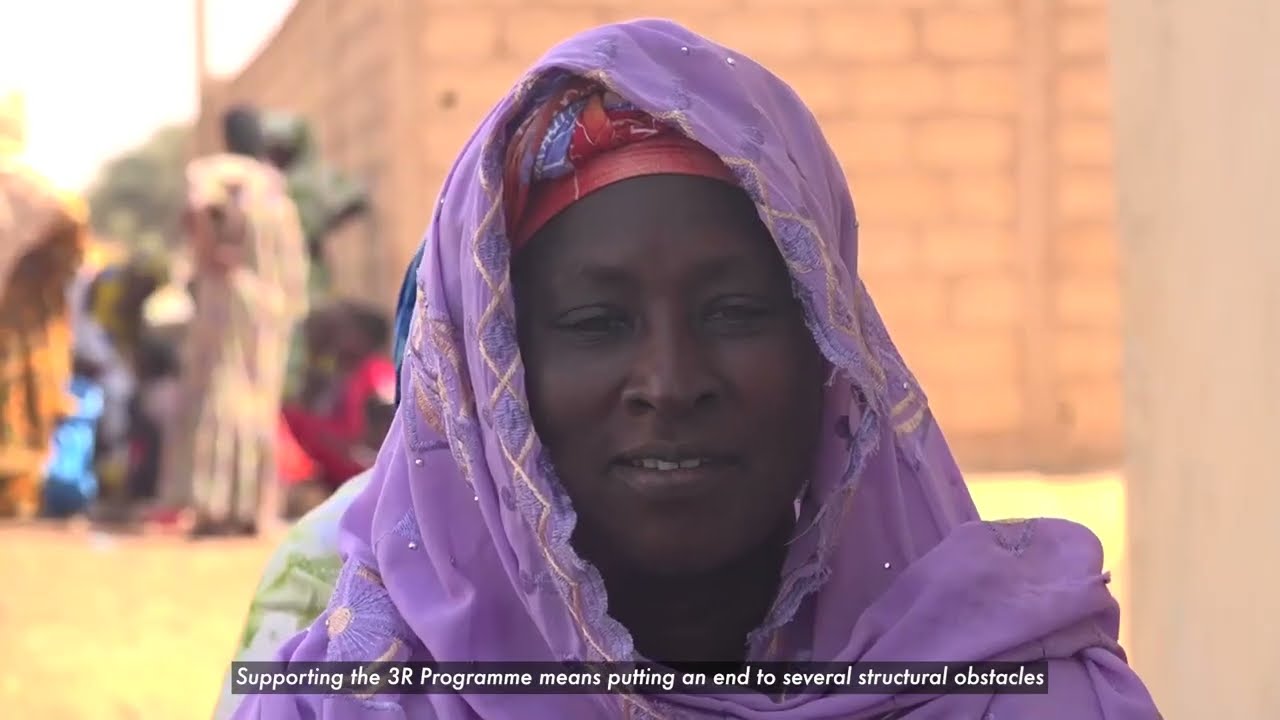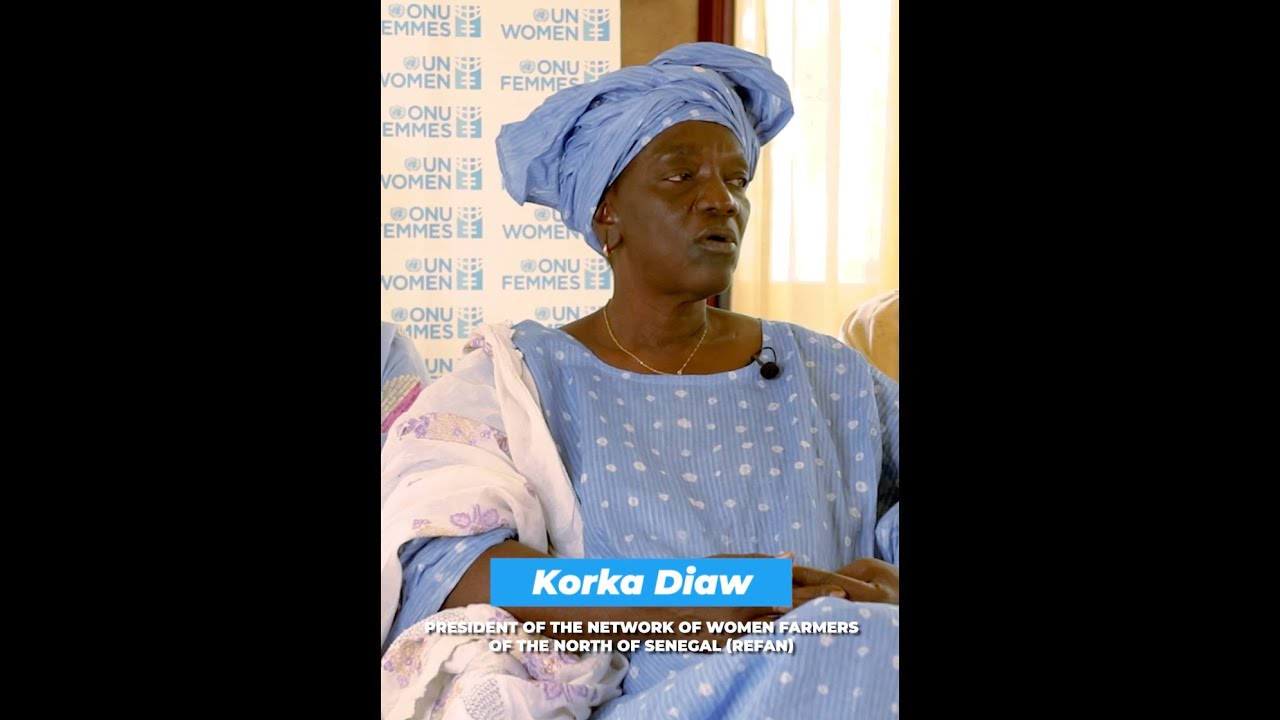UN Women, Women’s Economic Empowerment Strategy, 2024.
Transforming care systems in West and Central Africa
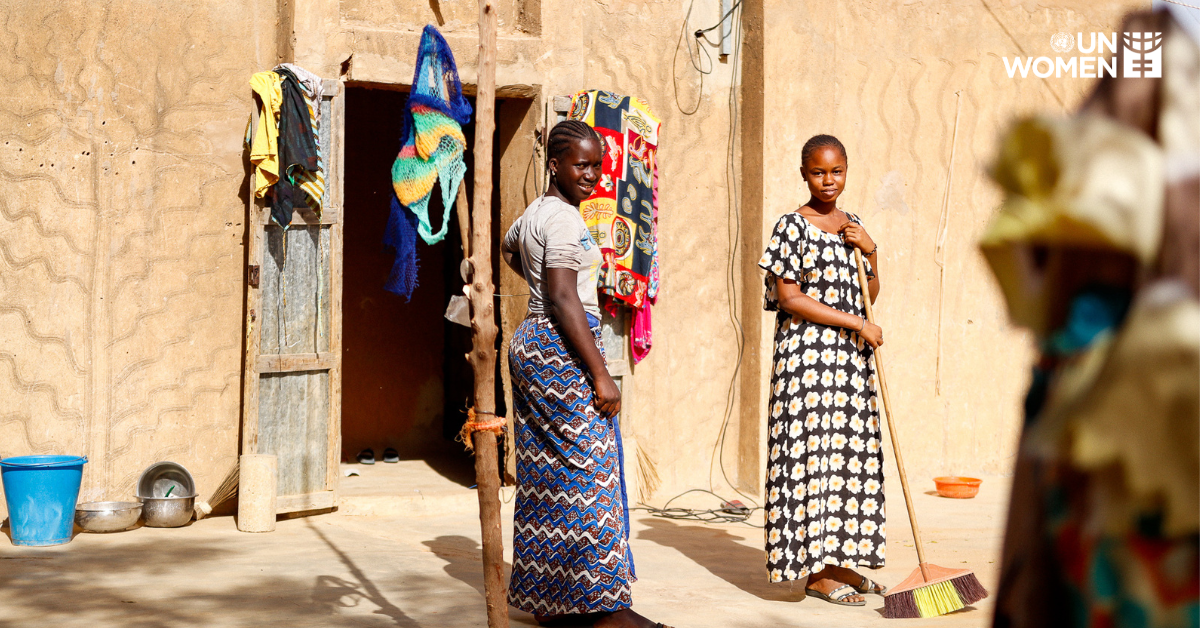
Care work is the backbone of households and societies, yet it often remains invisible, unpaid, and undervalued. In Sub-Saharan Africa, women spend 3.1 times more time on unpaid care work than men including fetching water, collecting firewood, doing laundry, preparing food, and caring for children, sick, older persons, and people with disability. Unequal responsibility for care work among women and girls is a structural driver of gender inequality. It limits their time, choices and opportunities for decent paid work, education, public life and leisure. It crowds millions of women into low-paid and insecure jobs, leaving them more likely to toil in poverty without social protection across their lifetime. In addition, climate change increases care responsibilities, especially in rural areas. Climate change exacerbates the intensity and the time of unpaid care work by reducing the availability of resources, such as water, electricity and wood or other fossil fuels.
The monetary value of women’s unpaid care work globally is at least US$10.8 trillion annually. If accounted for, women’s unpaid care and domestic work produced would represent 13.9% of GDP in Senegal and 17.6% of GDP in Mali. Despite its potential for countries’ sustainable development trajectories, care work is often overlooked in policymaking in the region.
UN Women works with governments, local partners, women’s organizations, and regional bodies to recognize, reduce, and redistribute women’s unpaid care work and transform care systems in West and Central Africa. Our care strategy in the West and Central Africa region aims to provide 100,000 women and girls with access to care solutions, release 29 million hours of their time, and create 150,000 low-carbon, decent jobs by 2030. To achieve these goals, we focus on:
-
Building the economic case for care-responsive economic policies and programming.
-
Providing technical support to governments in formulating comprehensive care policies and strategies to invest in care services and infrastructure.
-
Increasing women-led care entrepreneurship to offer high-quality, accessible, and affordable care services.
-
Co-developing innovative care solutions with communities and the private sector.
-
Working with women’s organizations, feminist movements and community leaders to change norms and social perceptions of care work.

